Publications
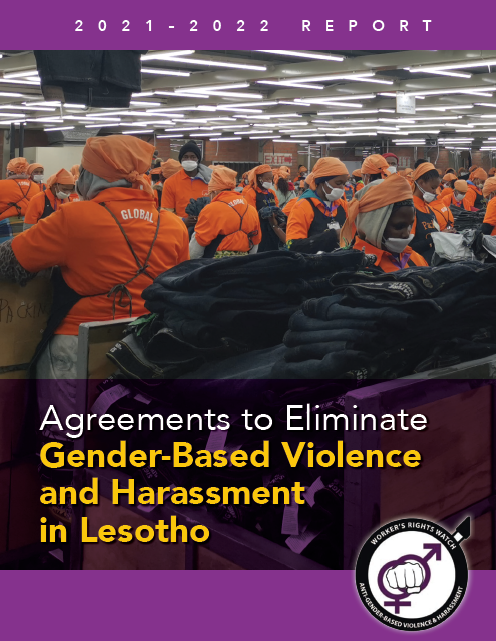
2021–2022 Agreements to Eliminate Gender-Based Violence and Harassment in Lesotho
A report by Workers’ Rights Watch tracks progress on a precedent-setting, worker-centered program in Lesotho garment factories to prevent gender-based violence and harassment (GBVH) of garment workers producing jeans for the global market. The Lesotho Agreements represent the first instance in which brands and their suppliers have entered into enforceable agreements with worker representatives to stop GBVH and protect workers. Sexual violence against garment workers is a well-documented worldwide problem.
Download it here.
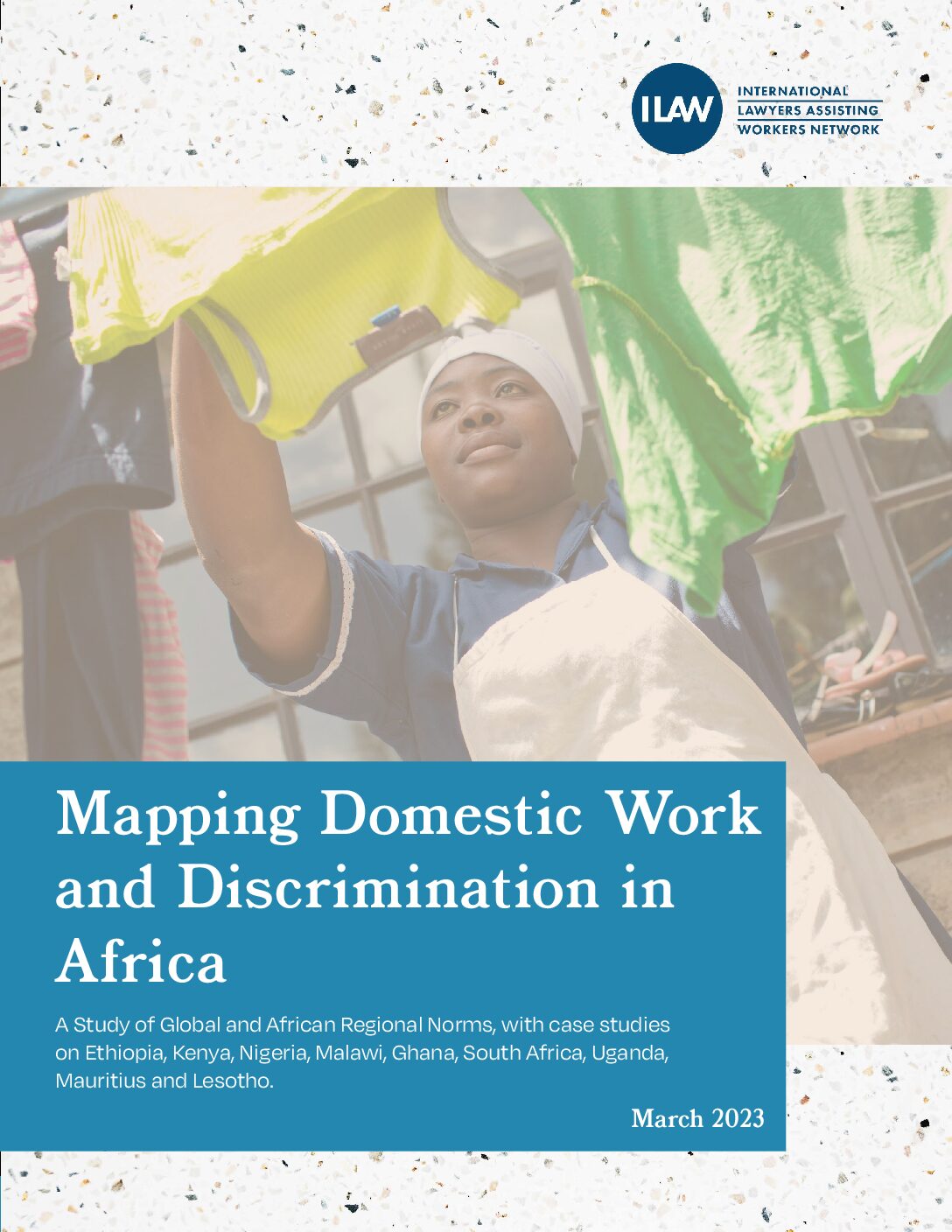
Mapping Domestic Work and Discrimination in Africa
This report looks at the domestic, regional and international legal frameworks regulating domestic work in nine countries: Ethiopia, Ghana, Kenya, Lesotho, Malawi, Mauritius, Nigeria, South Africa and Uganda.
Download it here.

2022 Annual Report
In 2022, the Solidarity Center marked a quarter century of supporting embattled workers, advocating and litigating for change, and celebrating worker rights advances in troubled times. As crackdowns on fundamental civil rights intensify around the world, workers and their unions are often the first targets. However, with their collective strength, workers and their movements have proven to be the largest force for protecting democracy. Learn more about how the Solidarity Center is standing with workers, trade unions and their movements in 60-plus countries reaching more than 70 million workers in our 2022 annual report.
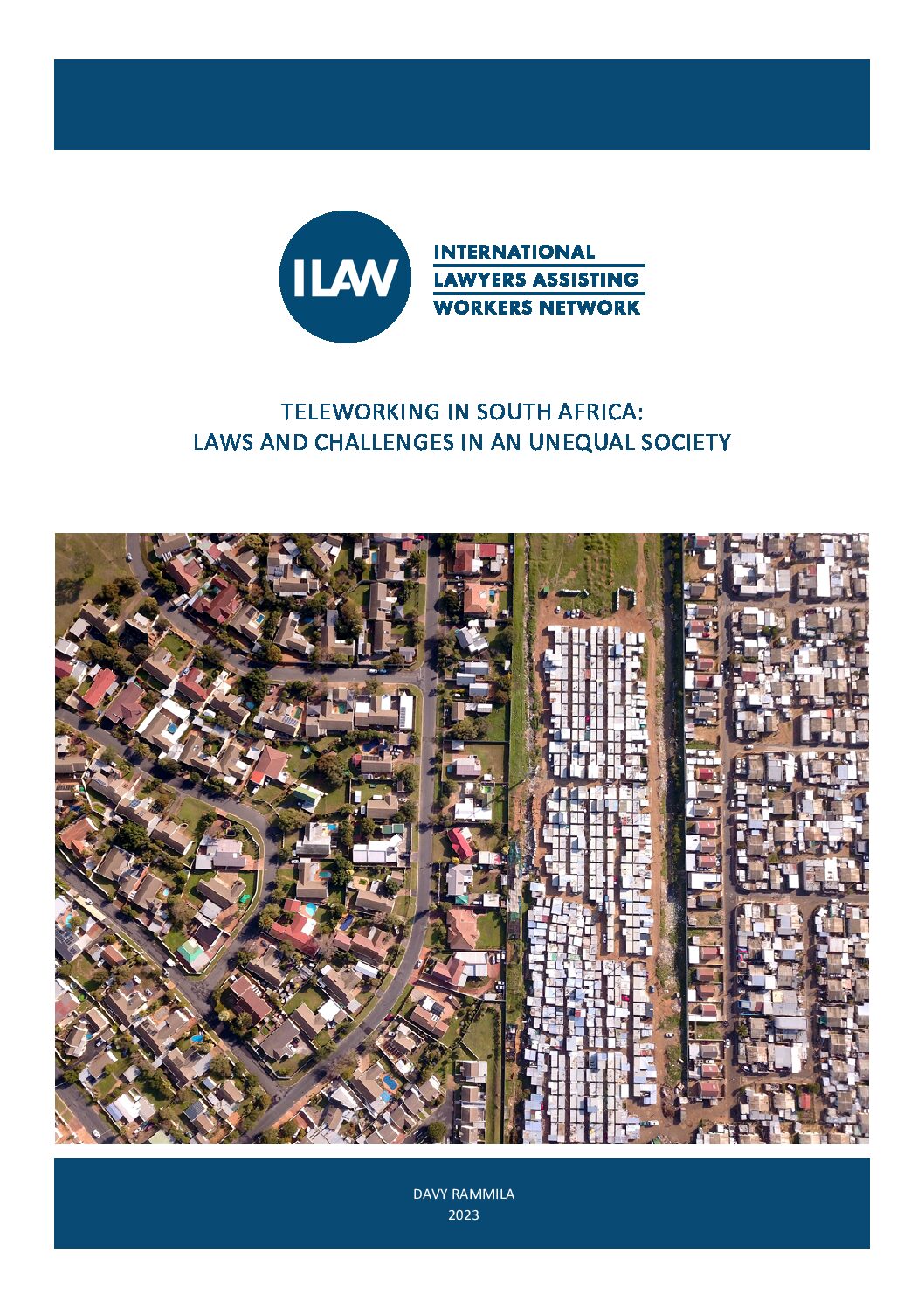
TELEWORKING IN SOUTH AFRICA: LAWS AND CHALLENGES IN AN UNEQUAL SOCIETY
The ILAW Network is pleased to release reports on the regulation of telework in Mauritius and South Africa. The reports examine the impact of telework on a range of worker rights topics, including the regulation of atypical work, access to health and safety measures, work hours and the right to disconnect, protections against discrimination, privacy, and the right to collective bargaining.
Download it here.
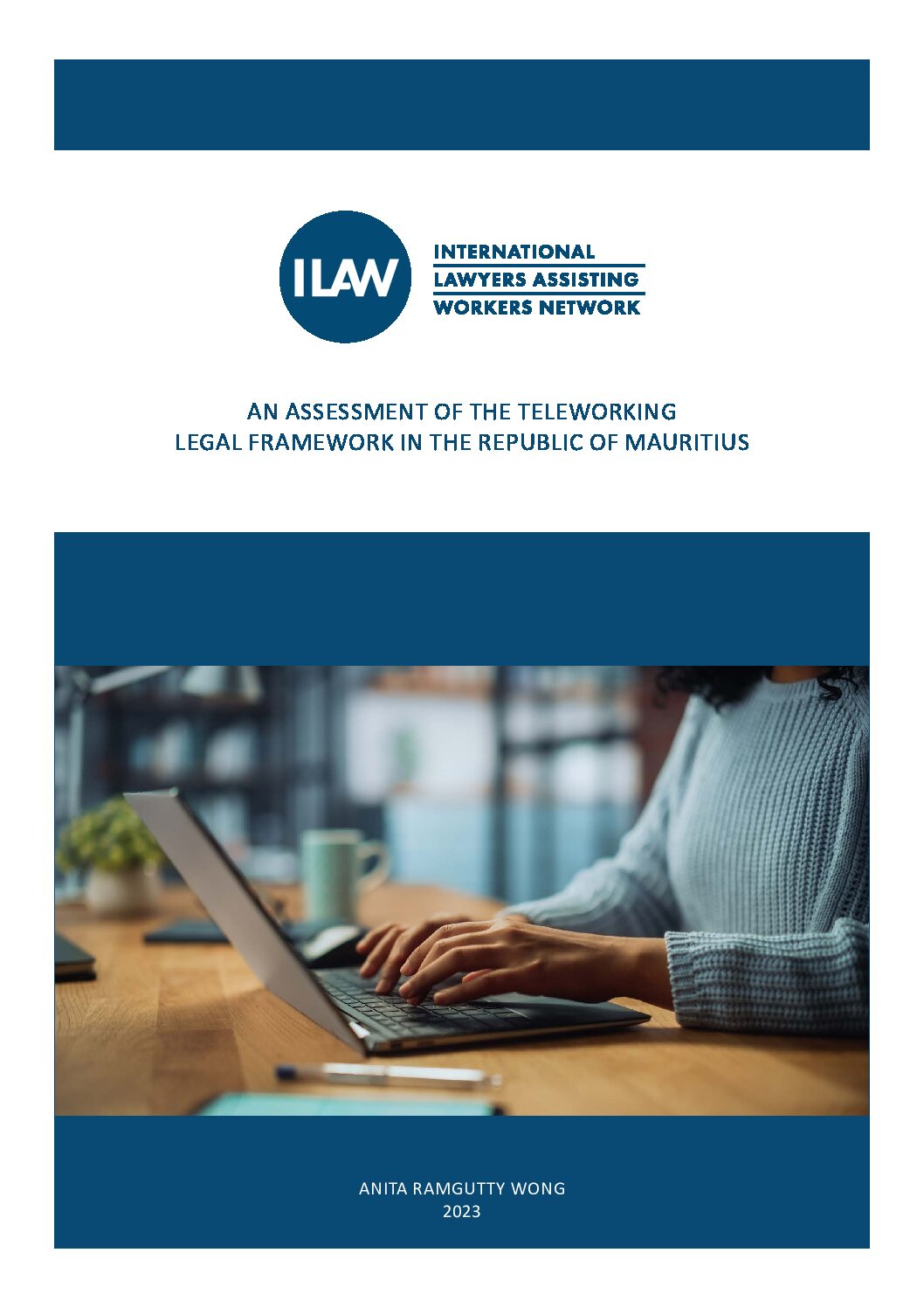
AN ASSESSMENT OF THE TELEWORKING LEGAL FRAMEWORK IN THE REPUBLIC OF MAURITIUS
The ILAW Network is pleased to release reports on the regulation of telework in Mauritius and South Africa. The reports examine the impact of telework on a range of worker rights topics, including the regulation of atypical work, access to health and safety measures, work hours and the right to disconnect, protections against discrimination, privacy, and the right to collective bargaining.
Download it here.
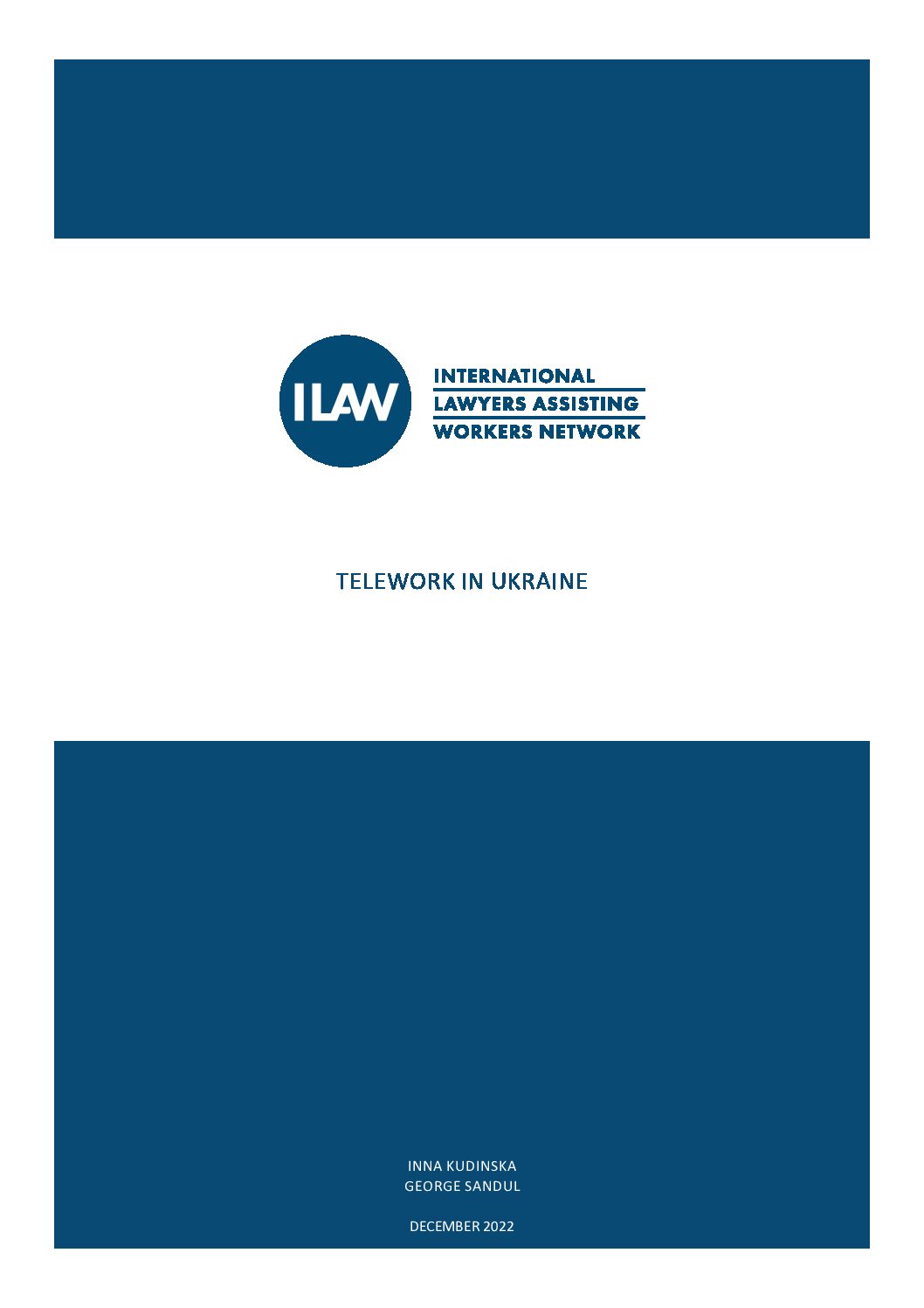
TELEWORK IN UKRAINE
The ILAW Network has undertaken a research series on telework in Europe and Central Asia. National reports examining the regulation of telework in Moldova, Poland, and Ukraine examine the impact of telework on a range of worker rights issues, including work hours and the right to disconnect, access to health and safety protections, discrimination, worker misclassification, privacy and the right to collective bargaining.
Download it here.
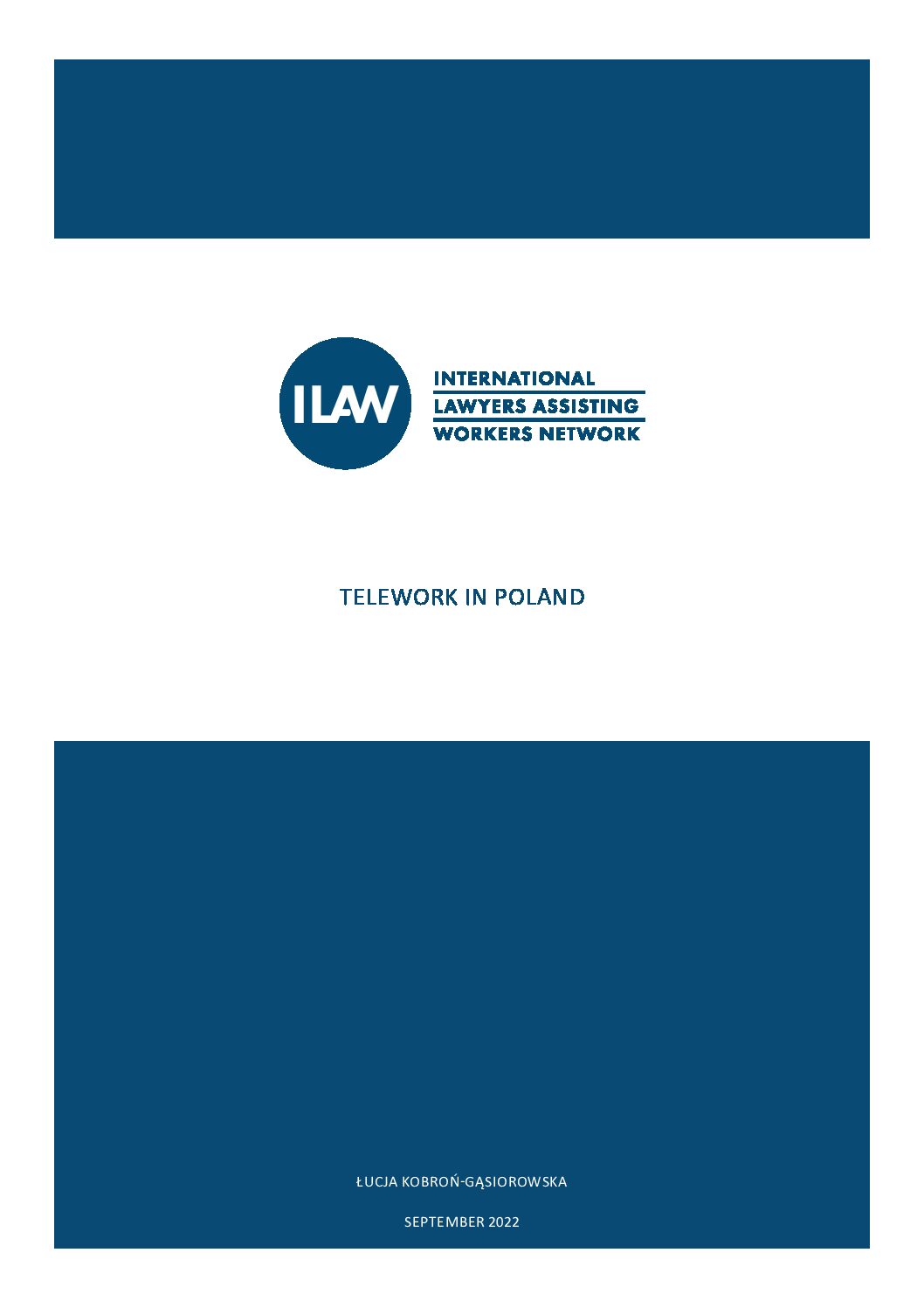
TELEWORK IN POLAND
The ILAW Network has undertaken a research series on telework in Europe and Central Asia. National reports examining the regulation of telework in Moldova, Poland, and Ukraine examine the impact of telework on a range of worker rights issues, including work hours and the right to disconnect, access to health and safety protections, discrimination, worker misclassification, privacy and the right to collective bargaining.
Download it here.
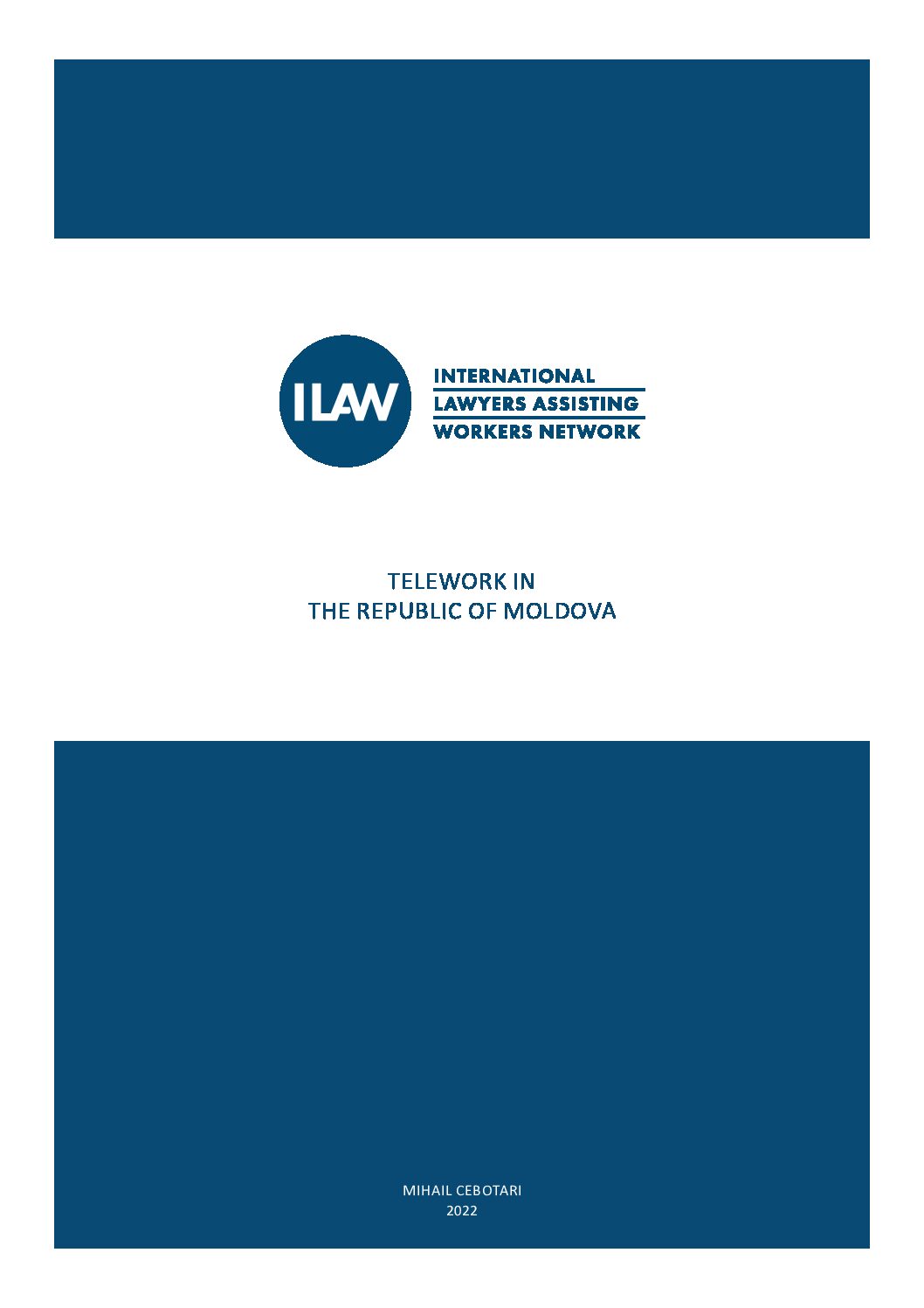
TELEWORK IN THE REPUBLIC OF MOLDOVA
The ILAW Network has undertaken a research series on telework in Europe and Central Asia. National reports examining the regulation of telework in Moldova, Poland, and Ukraine examine the impact of telework on a range of worker rights issues, including work hours and the right to disconnect, access to health and safety protections, discrimination, worker misclassification, privacy and the right to collective bargaining.
Download it here.
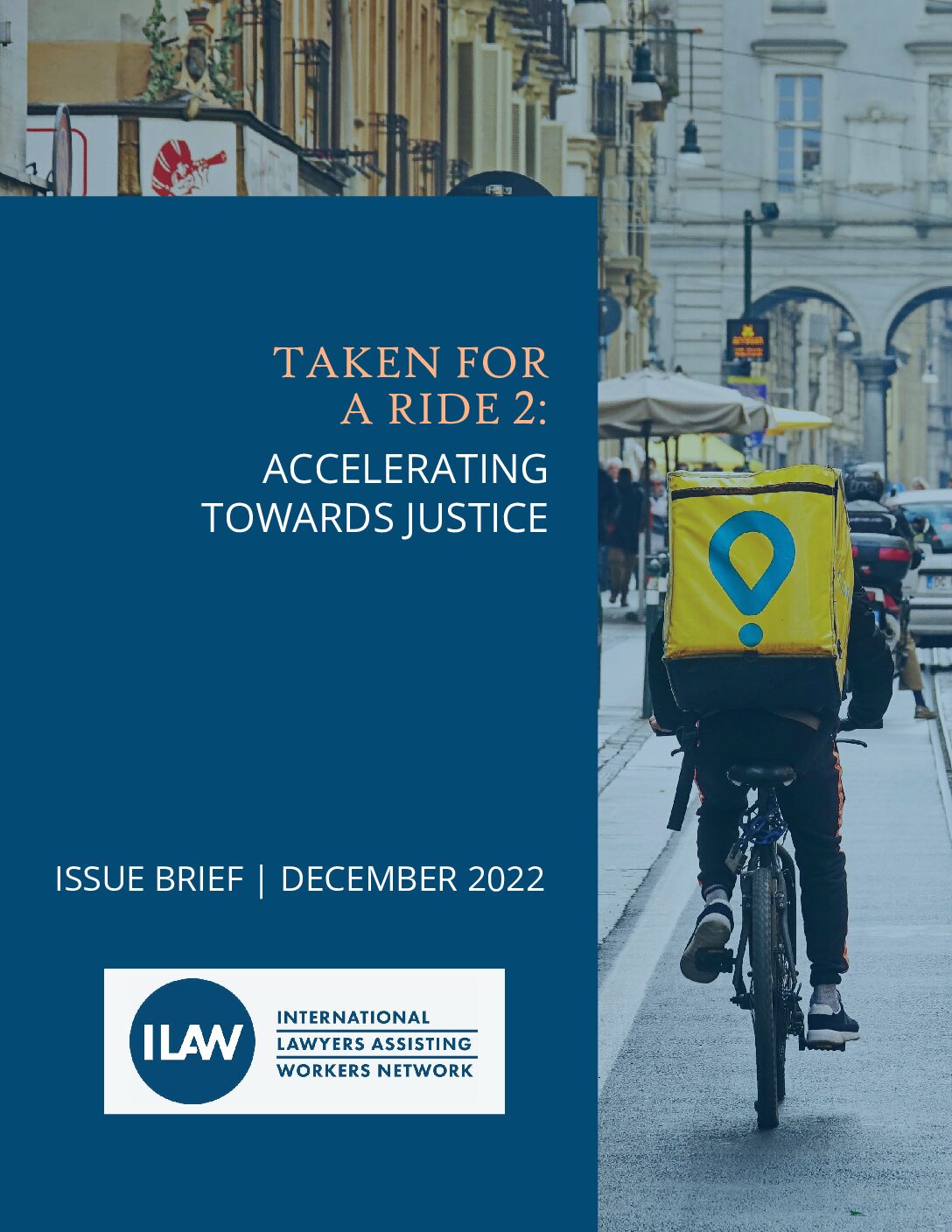
Taken for a Ride 2: Accelerating Towards Justice
This report is an update to the original Taken for a Ride Issue Brief, released in March of 2021.
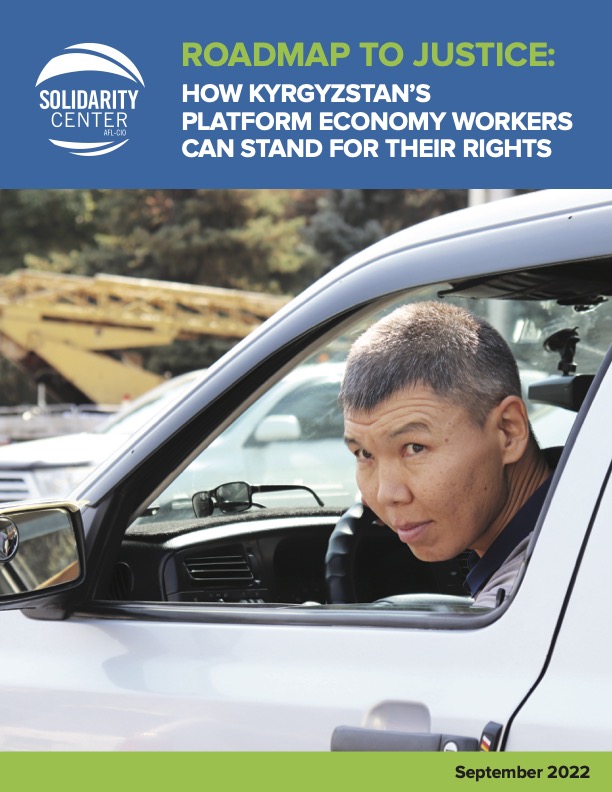
Roadmap To Justice: How Kyrgyzstan’s Platform Economy Workers Can Stand For Their Rights (2022)
The digital platform share in the economy in Kyrgyzstan is growing, and with that growth, an increasing number of people are working through these platforms. Due to its growth, the vulnerability of workers in this sector has also become more apparent, especially for marginalized groups.
